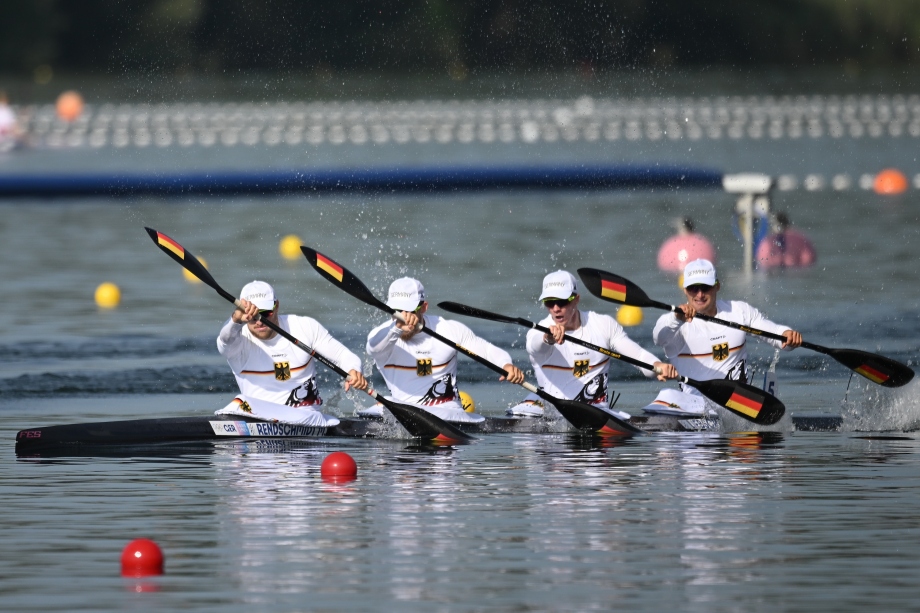Eighteen months out from Paris 2024 and a quartet of German Olympians sat together to work out a plan to resuscitate their faltering Games campaign.
The quartet are better known as the German men’s kayak four, or better still, as the boat that has won Olympic gold at the past two Games.
But with Paris 2024 coming at them like a freight train, things were not right. They weren’t gelling in the water like they once did. The crunch moment was last year’s European Games in Krakow, when Max Rendschmidt, Tom Liebscher-Lucz, Jacob Schopf and Max Lemke finished an uninspiring fifth.
The choice was simple – try something different, or end up as also-rans in Paris.
“I think after the European Games took place last year we had the confidence to do some major changes, and I think it was a big step for our National Federation and for us to make a change in the middle of a qualifying year,” Lemke said.
“I think it was good that we had the confidence to do that, and it worked out really well. We got rewarded for taking a risk and doing something different.”
The changes involved shuffling the crew around. Not bringing in any new talent from Germany’s seemingly bottomless pit of formidable male paddlers, but just moving a couple of the existing quartet around.
“We just changed positions, everyone could see that, Tom (Liebscher-Lutz) and I changed seats,” Lemke said.
“The boat has run a lot smoother since then. Even from the first session we could already feel in the boat that it was running a lot easier, that we don’t have to work so much to keep the speed. It’s not a secret at all.”

The change was dramatic. From a crew of mid-field battlers staring down the barrel at missing an Olympic medal, to world champions and Games gold medal favourites in just a handful of weeks.
Schopf has no doubt that the closeness of the team, and the shared vision and determination to reach their Olympic goal, made change much easier. The first step was to do something many teams, and especially male teams, struggle with.
“I think it was a really big step that we talked, we talk about everything,” Schopf said.
“We thank about everything that we have done, and we structured something new. And we also improved our training, because there was a fault, and then we did it better. If you want to improve, than you can improve, and you have to talk about it.”
On Tuesday in Paris, the German men’s K4 qualified fastest. And then the quartet paired off, and set the two fastest times for the men’s kayak double heats. Schopf and Lemke were quickest.
Ominously for the rest of the field, and for the K4, they did it off a very limited preparation.
“Our K2 ran quite smoothly from the beginning so we didn’t need to spend too much time, but obviously it would have been better to start racing some races last year in the K2, but obviously our Federation had different ideas,” Lemke said.
“So it was a bit hectic, a bit stressful to get started, especially at the world cup and now, to figure out some things. I mean we are at the Olympics, and still figuring out our race plan.
“It’s definitely not the best preparation, but I think that’s also what makes it interesting.”
Interesting indeed.
Pictures by Honest Media.




